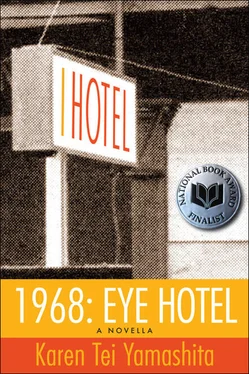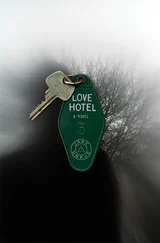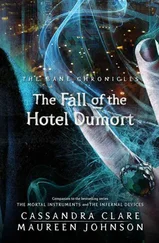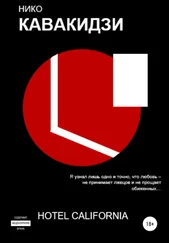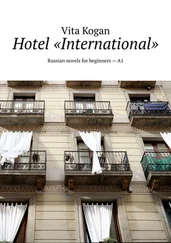X
Virtue is not solitary; it always has neighbors.
— Confucius (4.25)
10.1 Edmund angrily paced Professor Chen’s library in Marin overlooking the Golden Gate, reading the cruel history of celestials in America. He wrote his manifesto in the newspaper and called for a new organization: Chinese for Affirmative Action. Paul Lin said, “Remember when you were always working as a waiter and had no time to protest?” Every man must take his turn to stand out in the cold and face the riot squad.
10.2 First he and Paul Lin and about a dozen others, then fifty, then two hundred, then more and more Chinatown Chinese who now called themselves Chinese for Affirmative Action protested in front of the Holiday Inn, blocking the doors and marching around the tourists with picket signs and bullhorns. They were joined by the International Hotel Tenants Association, the Save the Kong ChowTemple Committee, and the Chinatown Cooperative Garment Factory Workers. Gung Hay Fat Choy! Whose holiday, Holiday Inn? Holiday Out! Holiday Out!
XI
When nature prevails over culture, you get a savage; when culture prevails over nature, you get a pedant. When nature and culture are in balance, you get a gentleman.
— Confucius (6.18)
11.1 Being the director was not easy, especially when the youths he was supposed to be helping walked in the next day as Red Guards, talking militant revolution, waving Mao’s Little Red Book in his face, accusing him of reformist measures, and wanting to set up a breakfast program like the Black Panthers’, for Chinatown kids. One man’s program is another man’s complaint.
11.2 The Six Companies yelled about how the Red Guard marched around throwing cherry bombs at tourists and yelling, “Off the Honkies!” What kind of business plan was that? And Chinatown kids don’t need a breakfast program; their mothers feed them every morning. I might be a dead dowager, but I know a thing or two. This is Chinatown; did your mother ever send you to school hungry? It’s an insult! What sort of son are you anyway?
11.3 Are we Yellow Panthers to mimic the blacks? We are one billion Chinese in the world, a powerful majority with a decisive role in history and the destiny of humanity. Insult your mother, and one billion Chinese will destroy you. And if it is not already clear, the Chinese are the wisest people on earth.
XII
Knowing others is intelligence; knowing yourself is true wisdom. Mastering others is strength; mastering yourself is true power.
— Lao Tzu
12.1 Paul Lin wrote this poem:
I have been left to wander this
three-tiered palace
among your memories
your priceless antiquities
paintings and poetry
your hair oil scented in the cushions
and bedsheets
your spiced preferences
old canisters of herbal remedies
and aged teas and cognac.
In your absence
I practice the art
of the gentle scholar,
while across the bay
the red arches of revolution
beckon home my
Chinaman self.
On which side of the bay
does the father live?
On which side of the bay
the worthy son?
On which side of the bay
the beloved?
The yin and yang
of self
split in multiple and
prismed refractions
against the sun
that inevitably sets
in the West.
XIII
No one knows less about servants than their master.
— Charlie Chan
13.1 The masculinity of the man of color in America is constantly called into question. What should be done about those colored homosexuals and raging feminists whose presence undermines the full and masculine citizenship of every man of color? I ask, if your masculinity is not your own, to whom does it belong? But in the Year of the Dog, who is listening to the dowager who lived among eunuchs? Only the tough and vitriolic can survive.
13.2 Paul Lin read Chen’s signed copy of Baldwin’s Giovanni’s Room , and for the first time read a literary critique that spoke plainly of it. But he also read the Panther’s Minister of Information, Eldridge Cleaver, who spat his hatred of the homosexual traitor Baldwin, who displayed, he said, the most agonizing self-hatred and “the most shameful, fanatical, fawning, sycophantic love of whites.” Then one of the black writers in the Poetry Boys Club came around and laughed about Baldwin, calling him that “hustler who comes on like Job.” Paul remained silent. Club membership depends on keeping its pretenses.
XIV
Life is tragic simply because the earth turns and the sun inexorably rises and sets . . .
— James Baldwin
14.1 Chen joined others at James Baldwin’s eighteenth-century house nestled among arbors of hanging grapes, peach and almond orchards, and fields of strawberry and asparagus in the acreage just outside of Saint-Paul de Vence, an ancient walled village overlooking the Mediterranean Sea. He sat nursing a glass of local wine, scribbling postcards, and overheard the questions posed by a bright young black reporter to Baldwin sitting in the dappled sunlight. What did Mr. Baldwin feel about Cleaver’s accusations?
14.2 Baldwin played magnanimous. He wouldn’t be intimidated by this young, impressionable reporter who no doubt sided with the radicalized machismo of the current black movement. Baldwin said he was very impressed with Cleaver’s writing, that he couldn’t be insulted since what did Cleaver know except from his assumptions of the debased faggots he met in prisons? They’d never met. Cleaver’s thinking was understandable from his life experience and also his perverse encounters with his angry sexuality. (Baldwin never mentioned the word rape. ) No, he didn’t mean to patronize Cleaver.
14.3 The reporter looked off with some distraction into the olive and pine trees, sniffed the wild rosemary and thyme perfuming the air. What is the use of a garden if not to rest the mind and to soften the heart?
14.4 But how, insisted Baldwin, were he and Cleaver so different, created out of their different but equally oppressive encounters with white society? Baldwin himself was an “odd and disreputable artist,” and Cleaver an “odd and disreputable revolutionary.” A pity there should be no time for them to meet. All men are brothers.
14.5 The reporter smiled. Did Mr. Baldwin know the news that Cleaver was even now just across the Mediterranean, escaped to Algiers? Baldwin said nothing but smiled over at Chen, who must have quietly made the delicate connections to allow Cleaver to travel at all and, eventually, to China. A true benefactor is surely invisible, if not coy.
14.6 The young reporter would finally leave and malign the memory of the writer, declaring Baldwin’s show of magnanimity the pathetic response of the has-been writer, out of touch with his subject. Distant from hospitality, one’s gratitude may disappear.
XV
A poem is never finished, only abandoned.
— Paul Valéry
15.1 Edmund said to Paul, “If you want to be a poet, you have to present your poetry to the public. You have to rise to the occasion and read, like Allen Ginsburg, Kenneth Rexroth, and Gary Snyder. What are you waiting for? Why should those guys be writing Asian American poetry anyway? I propose a real Asian American read-in. You can read here at the Chinese Youth Services, on the old stage of the Hungry i. You, like Barbra Streisand and Lenny Bruce, can make your start at the Hungry i. I’ll give you top billing, and you can bring your Poetry Boys Club along as well.” Oftentimes the declaration itself is one’s independence.
15.2 The Poetry Boys Club called themselves CARP, like the fish.
Читать дальше
